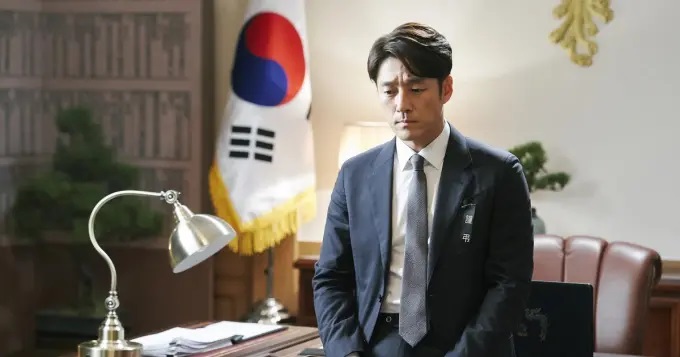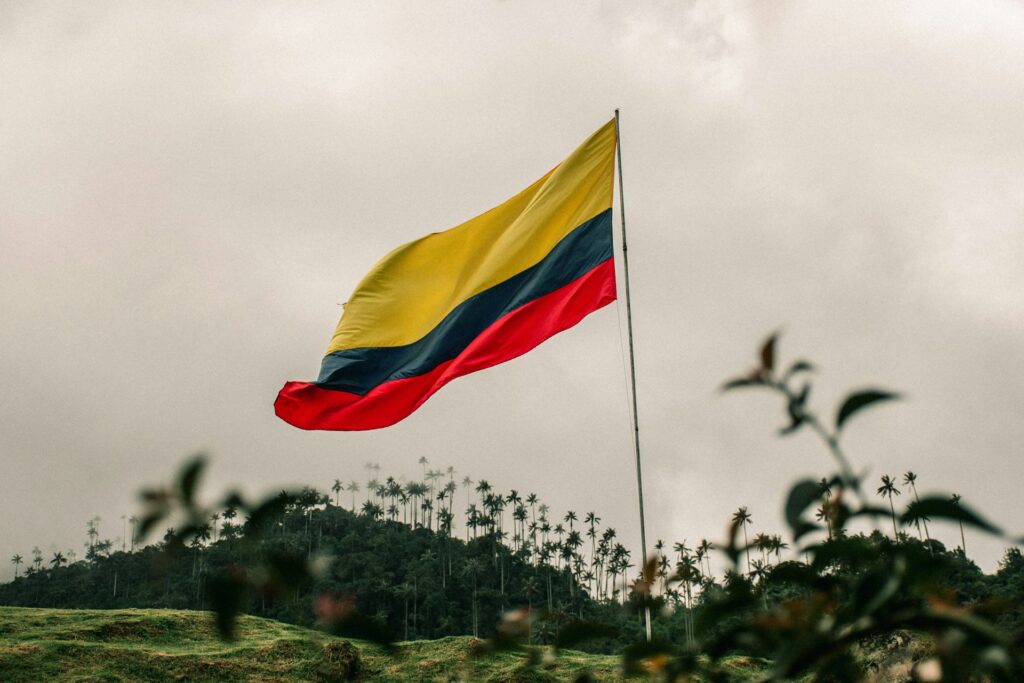Political fiction in popular culture operates on both global and local levels. In this Hyeon Su Seo and Mikko Poutanen discuss two television shows with explicit political dimensions: Designated Survivor (US) and Designated Survivor: 60 Days (South Korea).
Popular culture with political themes is never exempt from the realm of politics and cultural context that informs these products. Fictionalized politics may offer dramatized solutions to complex political problems by wise and moral leaders who adhere to positive (hegemonic) values.
While political drama can be highly entertaining to audiences, researchers may find a lot of interesting political potential embedded even in superhero movies. Similarly some TV-shows, like 24 (2001-2010) reflect the cultural anxieties (of specific audiences) of the time and are thus at least indirectly political.
Political fiction and fictional politics
Ruth Wodak has recognized American television in her works as a powerful cultural force, that can set boundaries between fiction and reality – or erode them – on a global-but-local scale. American TV shows are also reproduced to different local markets: 24, for example, has been reproduced into an Indian setting in 24: India (2013).
Liesbeth Van Zoonen argues that (over-)dramatizing politics is not necessarily detrimental, as in some cases politically tinged popular culture can also support civic values and engagement.
In some cases politically tinged popular culture can also support civic values and engagement.
The fictionalization of politics creates worlds that are more traditionally manageable by politics, and seeks to establish appealing values and an appreciation for politics. Politicians can draw on globalized archetypes of fictional political leaders for inspiration and familiarity in style for themselves or project them onto others, in the form of familiar narratives of idealists, saviors, or villains, with the last becoming increasingly dominant not only in US popular culture in the late 2000s.
This has increasing relevance for politics as studies find that fictional politics still influence audience perceptions of what “real-life” politics and political actors are like, even when the information is disclaimed as factually incorrect, fiction nevertheless remains salient and interferes with audience perceptions.
Studies find that fictional politics still influence audience perceptions of what “real-life” politics and political actors are like.
This article discusses another case of an explicitly political TV-series that has been moved from local (American) to global, but then localized anew to a very different local setting: the original US version of Designated Survivor (2006-2019) and Designated Survivor: 60 Days (2019–), placed in South Korea. Fair warning: this discussion will include spoilers of the plots of both shows.
Designated Survivor(s): The premise reflecting a crisis of politics?
The way original American show is set up literally obliterates politics as usual: a terrorist attack wipes out the entire United States’ government except for Tom Kirkman, Secretary of Housing, who is the designated survivor – the last man in the line of succession of a democratic government, promoted to the position of president pro tem.
The protagonist – an “accidental president” – is thus tasked with governing a nation – a Western superpower no less – in a time of crisis. The president has to navigate issues both foreign and domestic to stabilize a reeling nation, with the more craven nature of political expediency often on full display on the show.
What is notable that the protagonist is not a career-politician, but an academic who has been brought in from the outside. His lack of political savvy is also emphasized, but often positively so.
This seems to be in line with a broader trend that hints at underlying distrust at career politicians and the political establishment, with politicians actively distancing themselves a bit from politics (or polity), suggesting that they have ended up in politics somewhat by chance or circumstance, rather than ambition or calculation.
It appears that to be an honest and decent politician one cannot be tainted by being part of the political establishment – a common populist argument. In Designated Survivor politics is represented as duplicitous and strategic and often dishonest. Ideals, it seems, lose out to various forms of corruption: democracy is emphatically fragile.
It appears that to be an honest and decent politician one cannot be tainted by being part of the political establishment – a common populist argument.
While it would make sense to utilize this approach in the United States’ cultural-political context, it is less clear whether or not this reflects South Korean distrust of politics/politicians. The Korean version of the show utilizes a similar scenario to the original: the protagonist Park Mu-jin, Minister of Environment, becomes an Acting President for 60 days after an act of terror, which has wiped out most of the Korean political establishment.
Mr. Park is a professor of environmental technology, who rather sticks to numbers and data than “the game of politics”. The protagonist was originally persuaded by president to join his cabinet in a specifically non-political role: “you will be committed only to environmental ‘policy’ affairs for ‘public interest’, never involved in politics”. However, it is evident early on in the show that partisan politics and policy matters are intertwined.
In fact, Mr. Park was fired from his position just before the attack due to holding out on a matter of principle on an issue of environmental policy versus trade between South Korea and the US. The issue is both contemporarily relevant and notably more internationally oriented than in the original US show. At the same time it signals the suggested virtues of the non-politician.
Real-life politics?
Article 71 in the Constitution of the Republic of Korea states the order of succession. It should be noted that Article 71 has already been used nine times through the history of South Korea, in such dramatic upheavals such revolutions and coups.
This has even happened twice in the 21st century: in 2003 Prime Minister Goh Kun became an Acting President after President Roh Moo-hyun was impeached by the National Assembly (South Korean national parliament) and on December 9th 2016, when President Park Geun-hye was impeached in turn, again by the National Assembly, for her abuses of power and constitutional violations, and thus replaced by Prime Minister Hwang Kyo-ahn.
The Korean title of the show refers to Article 68(2) of the constitution, which dictates that a presidential successor has to be elected within sixty days. However, this is not always literal: in 2003 Acting President only served for 64 days before President Roh returned to power after the Constitutional Court judged the parliamentary impeachment as groundless. In 2016, the Constitutional Court decided to approve the parliamentary impeachment, which caused an early Presidential Election to be organized within 60 days after the final decision of the Constitutional Court.
Mr. Hwang had performed the role of Acting President for 153 days in total, before the incumbent President Moon Jae-in was inaugurated on May 10th, 2017. Hence, South Korean audiences have experienced acting president periods in real contexts until recently, which could contribute to increasing reality of the Korean-version drama.
A shared motif political distrust
Borrowing many elements from the original drama but also revising them to fit with own contexts (situations, scenes and characters), the Korean version succeeded in attracting a high interest from local audiences. In fact, the public perception of politics and politicians are very negative and narrow in South Korea
Regardless with parties or ideologies, it is a prevailed notion in Korea that most of political groups and politicians advocating noble causes and values are hypocritical and their real motivations are to seek for more powers and material interests. This perception is enhanced often by media outlets.
Decline of trust in politics and politicians is a common problem in South Korea, the US, and many European democracies, despite differences. The issue is more salient in countries which operate a ”winner-takes-all” styled majoritarian system of democracy, in presidential and other representative parliamentary election systems.
Between the shows, this is a shared motif. It is unclear whether the crisis of legitimacy and trust embedded in our contemporary representative democracy could be resolved by finding a “clean” figure, uncontaminated from established politics and putting him/ her into a highest place in the representative chain of democratic governance.
It is unclear whether the crisis of legitimacy and trust embedded in our contemporary representative democracy could be resolved by finding a “clean” figure, uncontaminated from established politic.
“A lotus in the mud” is a Buddhist symbol referring to the essence of enduring performance towards a true enlightenment. As a metaphor it is familiar to many Koreans as well. The motif of finding a new, clean and competent figure with less (corrupting) experience in established politics has been continuously revived in Korea.
However, this in itself creates a dilemma: even the cleanest candidate is prone to become corrupted, overw helmed by the ‘vortex’ of established politics (typical in Korean politics) or alternatively failing to reform the system due to naïve understanding of political realities and lack of practical capabilities. The cycle of political distrust seems endemic.
In both shows the protagonist gradually learns how to exercise political competency and practical wisdom while not giving up own principles and civic values. In this respect, both dramas demonstrate a high quality of contemporary political dramas advanced a further step beyond the cycle of distrust.
Living in fear of the other?
Although the shows are framed by a national security emergency, they diverge in their definition of the other. Given the background of the global war on terror, it makes sense in the original show to call on the asymmetric and elusive threat of terrorism. However, in the Korean version of the series, the assumed adversary is a fixed, symmetric, and above all historical enemy: the People’s Republic of Korea – North Korea.
The two Koreas remain in a cease fire without a peace treaty since the Korean War (1950-1953). International disputes surrounding North Korean actions and provocations have been continuous after the end of the international Cold War regime.
This makes North Korean aggression a plausible narrative for South Koreans, especially as there are no serious conflicts with Islamic countries. However, it is also a stereotyped presumption, when considering the political tension has lessened, at least to some extent, on the Korean Peninsula, especially since the ”Candlelight Revolution” in South Korea (2016-2017) and new policy directions of the Moon Jae-in government.
Thus it makes sense to also look to “the enemy within”: in both shows there is also the concern of the military command structure taking over the civil administration. The inexperienced president pro tem is seen as a liability by more hawkish military commanders.
Especially in South Korea, with 27 years of military dictatorship (1961-1987), this storyline is meaningful. This very real historical context adds an edge of reality to the drama’s plot of a military coup by a radical group in the armed forces. Unlike in the US context, without similar historical experience, there is an implied more serious threat to the political regime from within.
The state of South Korean democracy needs to be understood also in relation with the unstable regional security order in North-East Asia.
Fortunately, reforms of the military enacted in the early 1990s and the rapid growth of civil society since the 1987 democratization make such a regression unlikely. Still, mindful of such threats to democracy, a government probe into the possibility of aggressive military reactions to the “Candlelight Revolution” was later revealed by South Korean media.
The state of South Korean democracy needs to be understood also in relation with the unstable regional security order in North-East Asia. These offer useful causes to right-wing political groups, who want to restrict domestic democracy and free civil society. Moreover, such situations may result in military interventions from the US and China on the Korean matter.
Japan is also a regional power player, but crucially only formally allied with the United States, not South Korea. There was recent controversy following a suggestion by the United Nations Command to allow sending of Japanese troops to the Korean peninsula in a military conflict. The South Korean defense ministry protested strongly, as several historical tensions still exist in that regard.
The indirectly involved powers, such as Japan, China, Russia, the United States, might not have the peace-making task on the Peninsula and national interests of South Korea as a highest priority of agenda. This, too, is reflected in the show.
Grounds for optimism?
In both shows, it is later revealed that the terrorist attacks were domestic plots to maneuver a specific group into more authoritarian political power. Once more, the distrust of the political system and the absolute immorality of politics is on full display – arguably to the point of paranoia. American popular culture uses convoluted conspiracies as a dramatic staple, but in South Korea the risk of internal enemies is somewhat different.
Both shows depict the craven political opportunism of attacking minorities. In the original show the targets are American Muslims, but in the Korean version North Korean defectors are selected as the “localized” version of a terrorist sleeper-cell.
Once more, the distrust of the political system and the absolute immorality of politics is on full display – arguably to the point of paranoia.
As a matter of fact, more than 30,000 North Korean defectors form a very vulnerable minority within South Korea, given their poor political and socio-economic status. Despite governmental support in the form of financial and social services, many of them inevitably experience various forms of discrimination.
As military and political conflicts between the two Koreas continue to exist, such minorities are vulnerable to far-right political groups and media. However, it should be noted that South Korea has an established commitment to the rule of law and human rights; massive violations of a specific social group’s fundamental human rights would be hard to be successful in reality.
In addition, the Korean version of the show gained praise from the critics particularly for the episode dealing with the Law of Non-Discrimination (on the grounds of gender, ethnicity, religion, etc.). Recommended strongly by the UN, the legislation has been hotly debated in South Korea during the last decade.
“For what should we do politics, if we could not make this kind of reform initiatives!”
While progressive civil society organizations and human rights advocacy groups strongly demand this legislation, they have been equally strongly resisted by religious groups, who especially attack alleged legal provisions to protect the equal rights of the LGBT community.
Conservative South Korean Christians advocate for a fundamentalist interpretation of morality, and they have sufficient financial and organizational resources to impact major parties and individual politicians. As it stands, all progress on the issue has been blocked.
The show actually takes some time to debate the issue, and the question of morality over political expediency. The president pro tem Park finally puts the proposed legislation up for public debate, stating: “For what should we do politics, if we could not make this kind of reform initiatives!”
The episode, reflecting public demands for the principled politics and good leadership based on a scholarly conscience and reasoning, as well as universal values, provides a good example of the possibility that a well-made political drama can reflect thoroughly and at the same time overcome the realities.
Hyeon Su Seo valmistui yhteiskuntatieteiden tohtoriksi Tampereen yliopistosta vuonna 2017. Hän työskentelee nyt apulaisprofessorina Korean National University of Education -yliopistossa.
Mikko Poutanen on yhteiskuntatieteiden tohtori Tampereen yliopistossa ja Politiikasta-lehden vastaava päätoimittaja.




